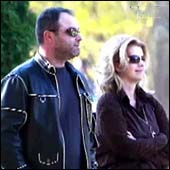![LED Traffic Lights http://commons.wikimedia.org/wiki/File:Led_traffic_lights.jpg [Public Domain] LED Traffic Lights http://commons.wikimedia.org/wiki/File:Led_traffic_lights.jpg [Public Domain]](https://www.exportlawblog.com/images/led_traffic_light.jpg) A federal district court in Chicago recently unsealed a criminal complaint against an Illinois man for importing an oil pump and attempting to import some LED traffic lights from Taiwan to the United States.
A federal district court in Chicago recently unsealed a criminal complaint against an Illinois man for importing an oil pump and attempting to import some LED traffic lights from Taiwan to the United States.
The reason that these activities are alleged to be illegal is that the lights and the pump were imported from a company that had been designated by the Office of Foreign Assets Control (“OFAC”) as a Specially Designated National (“SDN”). Any transaction with an SDN, whether an import or an export, is prohibited.
As background, the indicted man, Gary Tsai is the son of Alex Tsai, a resident of Taiwan. Â The father Alex Tsai was designated along with companies he controlled by OFAC on January 16, 2009, after he had been convicted in a Taiwanese court for sales of machinery to North Korea. Although the complaint details a number of exports by Gary Tsai to Alex Tsai and his designated companies prior to their designation by OFAC, these are not, and obviously cannot be, alleged to be illegal. Instead, I suppose, all the pre-designation transactions are provided for a bit of color. Who says prosecutors don’t like to have fun?
Most interesting, however, is that the imports in question are not just charged, as one would predict, as violations of the International Emergency Economic Powers Act, 50 U.S.C. § 1701 et seq., but also under 18 U.S.C. § 371 as a conspiracy to defraud the United States by obstructing enforcement of laws relating to the proliferation of weapons of mass destruction. That section is more widely known for its prohibition on conspiracies to commit any offense against the United States, but it also prohibits conspiracies “to defraud the United States.”
The statute in question was originally enacted in 1867 and appended to “An Act to amend existing Laws relating to Internal Revenue and for other Purposes.†Originally conceived as a revenue protection measure, the “defraud” prong of 18 U.S.C. § 371 has typically been employed in tax evasion cases.
In Haas v. Henkel, 216 U.S. 462 (1910), the Supreme Court expanded the scope of the provision and held
it is not essential that such a conspiracy shall contemplate a financial loss or that one shall result. The statute is broad enough in its terms to include any conspiracy for the purpose of impairing, obstructing, or defeating the lawful function of any department of government.
Of course, that formulation alone is overly broad and would criminalize any concerted action that somehow or other made the federal government’s activities more difficult. As the Ninth Circuit said in United States v. Caldwell, 989 F.2d 1056 (9th Cir. 1993), such a reading would make it illegal to agree not sell land to the government and force it to use eminent domain instead. In that regard, the Supreme Court in Hammerschmidt v. United States, 265 U.S. 182 (1924) said that the obstruction must occur through “deceit, craft or trickery.”
It is not at all clear from the criminal complaint what “deceit, craft or trickery” was used by Gary Tsai in importing the items in question from his SDN father. The best I can tell is that the government somehow thinks that because Gary Tsai and his father used Gmail accounts that did not contain their real names, this was some kind of trickery. It is hard to believe that any court will find some duty to use real names only for email addresses.

 Posted by
Posted by  Category:
Category: 



 According to this
According to this 


